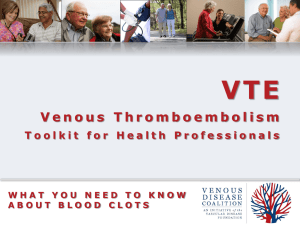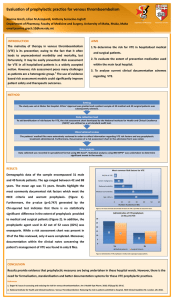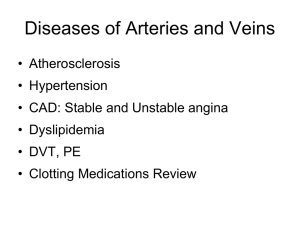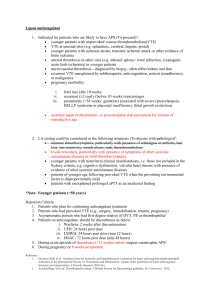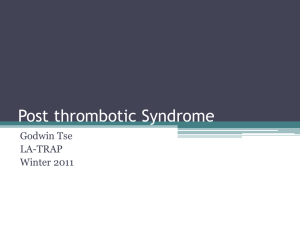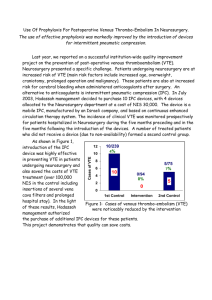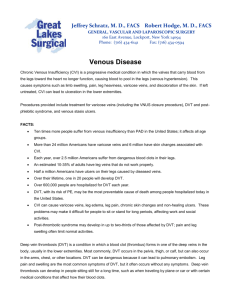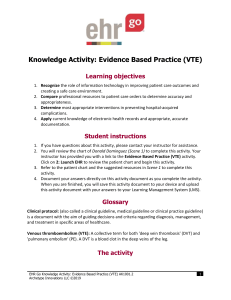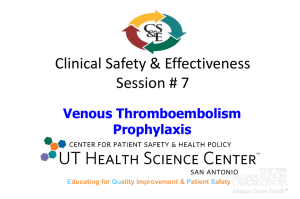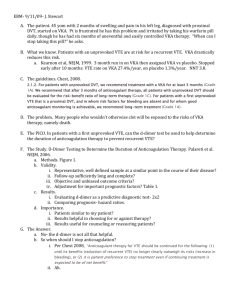VTE Toolkit
advertisement
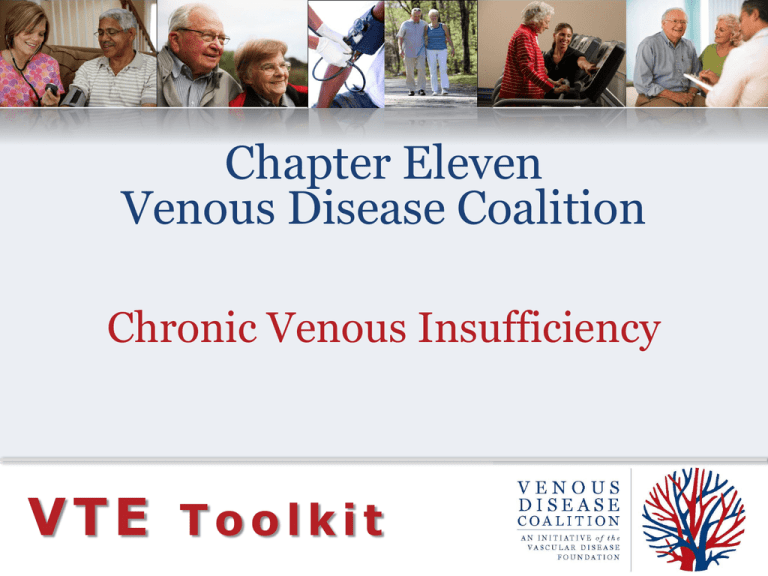
Chapter Eleven Venous Disease Coalition Chronic Venous Insufficiency VTE Toolkit Post-Thrombotic Venous Reflux Disease Seen in 20-50% of patients after DVT1 Normal Vein Dilated Vein 1. Deep vein valves become damaged by DVT resulting in venous valve failure Heart 2. Reflux or backward flow in the deep veins occurs Foot Valve Open Valve Closed Leaky Valve 3. Pooling of blood causes increased pressure in leg veins, edema, hyperpigmentation Reproduced with permission of VNUS Medical Technologies, CA 1. Antithrombotic and Thrombolytic Therapy 8th edition, ACCP Guidelines VTE Toolkit Chronic Venous Disease VTE Toolkit Telangiectases C1 Pigmentation C4 Varicose veins C2 Active Ulceration C6 Bergan – NEJM 2006;355:488 VTE Toolkit Post-Thrombotic Syndrome • Prospective study of 355 patients with DVT • All patients advised to wear 40 mmHg stockings Years since DVT Cumulative Incidence of PTS 1 2 5 8 17 % 23 % 28 % 29 % PTS - recurrent, ipsilateral DVT NOT - extent of DVT Prandoni - Ann Intern Med (1996) VTE Toolkit Prevention and Management of Post-Thrombotic Syndrome • Prevent recurrent DVT with anticoagulation • Encourage the obsessive use of good quality compression stockings = ESSENTIAL • Encourage regular exercise • Encourage normal body weight • Avoid local trauma to the legs • Aggressive management of stasis dermatitis • Urgent expert treatment of early ulcers VTE Toolkit Venous Disease Coalition www.vasculardisease.org/venousdiseasecoalition/ VTE Toolkit
